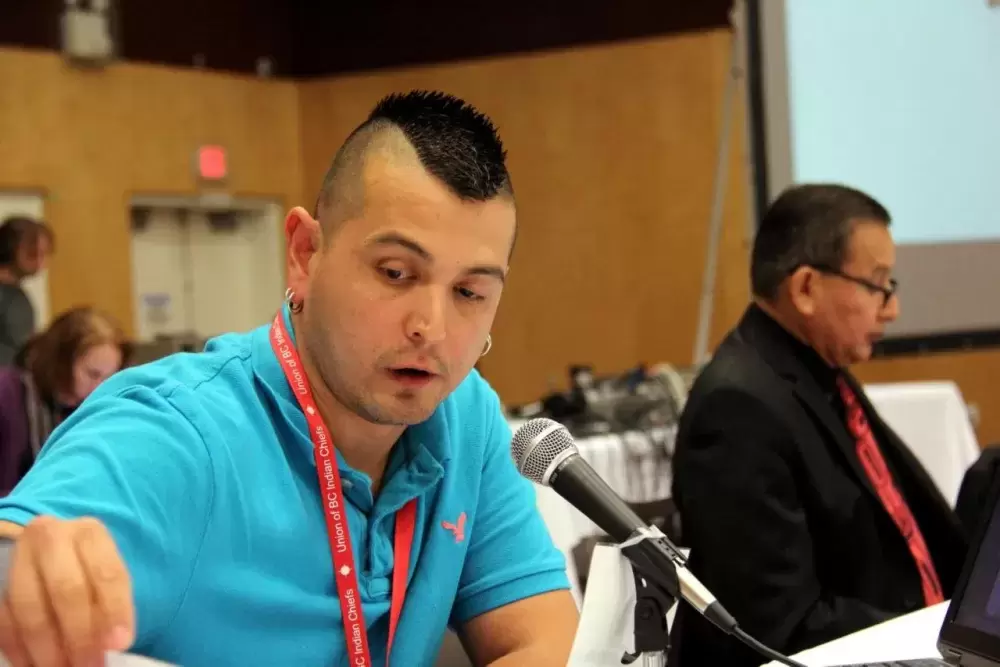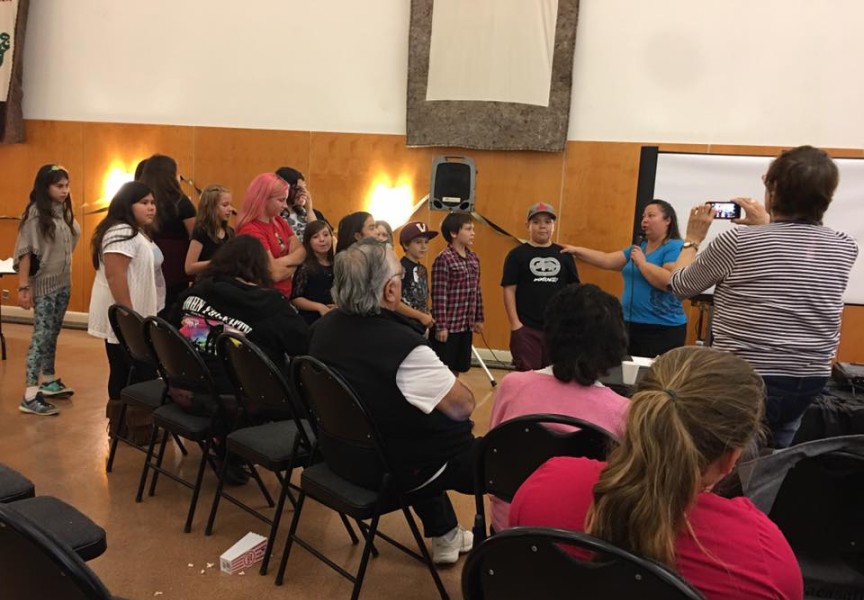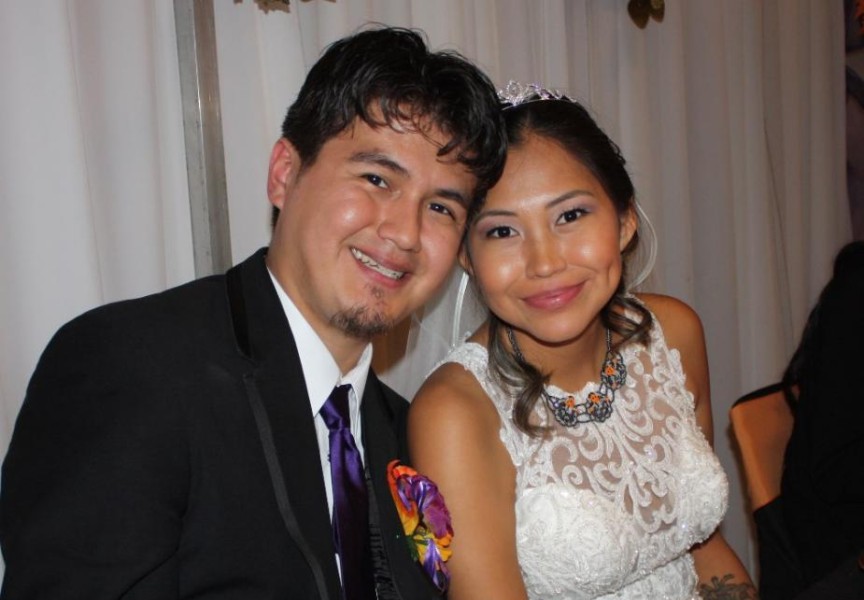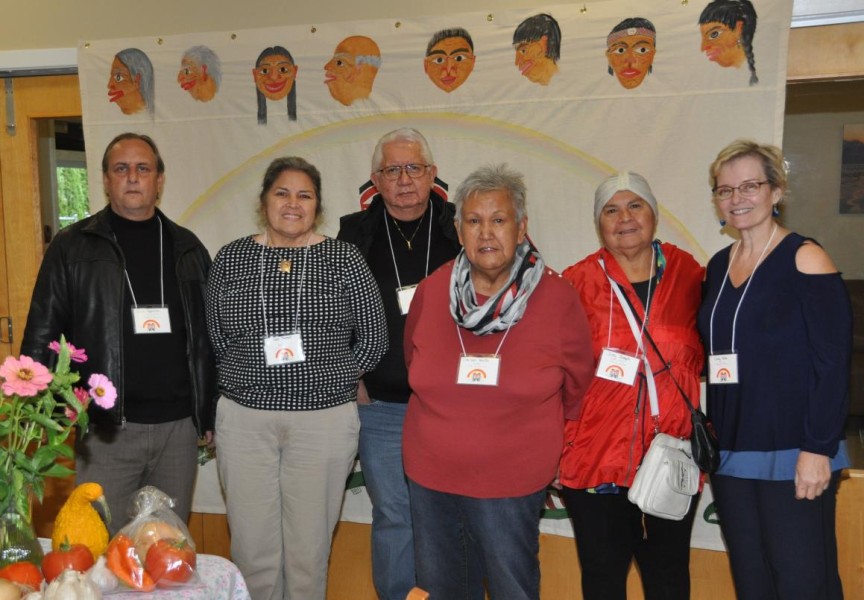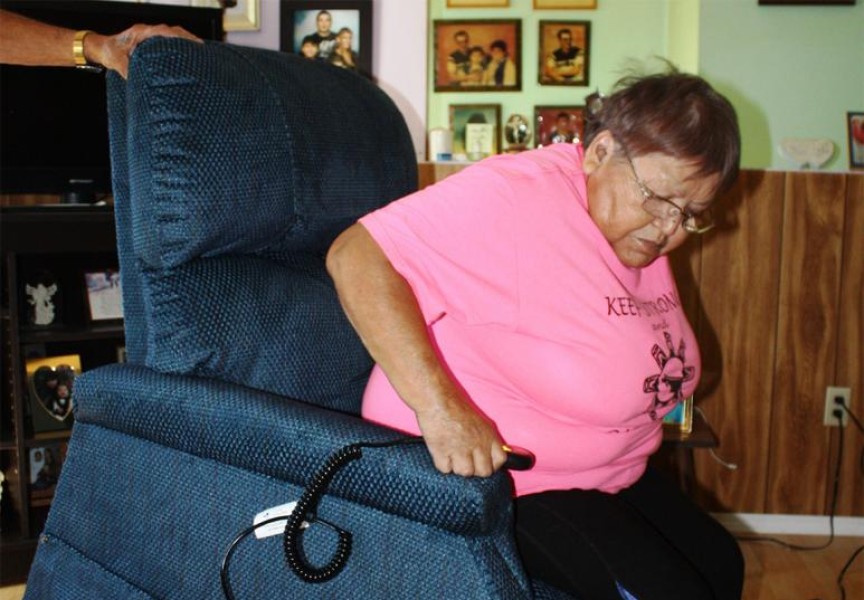As we approach the first-year anniversary of my full four-year term, I wanted to reflect upon some milestone events of the past year, and how I see Nuu-chah-nulth Nations moving forward. I have had the honour of serving our Nations as the elected Vice-President for roughly two years and I look forward to the next three remaining in this term.
Despite facing many challenges in our communities and at the Tribal Council (particularly the cuts to Tribal Council funding), we have done a great job staying afloat.
Tsilhqot’in…Changing the Landscape
On September 11th, 2014, thanks to the BC Chiefs’ support and by request of BC-AFN Regional Chief Jody Wilson-Raybould, I had the opportunity to be one of the first BC First Nations leaders to address Premier Christy Clark and her Cabinet at the important First Nations-Crown Relations Gathering hosted by the First Nations Leadership Council.
The meeting was sparked by the recent Supreme Court of Canada Tsilhqot’in decision. The legal landscape has changed for the Province and for BC First Nations. The ball is in our court, thanks to the Tsilhqot’in people and their landmark decision June 26, 2014. It was the first time Canada’s courts have recognised the existence of Aboriginal Title in Canada. It’s crucial that BC First Nations, including Nuu-chah-nulth Nations, move forward on this victory strategically.
I reminded the Premier, as I stood up Tyee Ha’wilth Maquinna of Ahousaht, that our Ha’wiih are the true Title and Rights holders of their ha’houlthee. Our Nations have never ceded or surrendered territory or authority to Canada. These Title and Rights are inherent, asserted by our Ha’wiih since time immemorial and will remain so forever.
I told the Premier that Nuu-chah-nulth Nations will exercise our rights today, tomorrow and always, and will defend Nuu-chah-nulth Nations’ ha’houlthee in Canada’s courts through title cases launched against the Province. I then reminded the Premier that much of this could be avoided—wasted time, energy and considerable taxpayer dollars to fight our people by denying these rights—if she would simply work with our Nations toward true recognition, reconciliation and, ultimately, our goal to achieve management of our resources and territories with respectful recognition of our rightful place in this country and province.
The First Nations-Crown Relations Gathering was a long-time coming, but provided a great opportunity for Nations to speak directly with the Premier and her Cabinet. The Premier offered little in the way of commitment to our people, however. In order to achieve certainty, recognition and reconciliation, the Province of BC needs to follow through with BC First Nations stated principles and joint expectations.
Acknowledgement that all our relationships are based on recognition and implementation of the existence of indigenous peoples’ inherent title and rights, and pre-confederation, historic and modern treaties, throughout British Columbia.
Acknowledgement that indigenous systems of governance and laws are essential to the regulation of lands and resources throughout British Columbia.
Acknowledgment of the mutual responsibility that all of our government systems shall shift to relationships, negotiations and agreements based on recognition.
We immediately must move to consent-based decision-making and title-based fiscal relations, including revenue sharing, in our relationships, negotiations and agreements.
A successful relationship between First Nations and BC can only be achieved if the Province puts action to these words.
Education
As you may recall, our 14 Nations signed a Unity Declaration on Education during the 2013 AGM. This declaration started with the words “Our Children are Sacred…” a true testament to why we do the work we do. The Declaration highlighted Nuu-chah-nulth concerns with potential education legislation that did not meet the needs of our people. As time progressed, a new Bill arrived, Bill-C33, the First Nations Control of First Nations Education Act. Many First Nations opposed this Bill, yet there is still a window of opportunity for education reform for our communities, whether that is full education jurisdiction here in British Columbia, or a negotiated new Education Bill that meets the needs of our communities, schools and, most importantly, our children and students. One thing is certain, Nuu-chah-nulth Nations and the Nuu-chah-nulth Tribal Council will never settle for anything but the best when it comes to our people’s education and for our schools on-reserve.
Communications
I am happy to announce that thanks to the foresight of our President Deb Foxcroft, and with the support of the NTC Executive, Florence Wylie and Simon Read, and with financial support from the eight (8) Nuu-chah-nulth Nations of the Aboriginal Recipient Funding Agreement (ARFA), NTC will be hiring a Communications Coordinator. This coordinator will not only help ensure that leadership is kept aware of NTC matters, but will work to extend that awareness to our muschim as well.
Capacity Building and Governance
I have said this time and time again over the past several years: We need to foster development of good governance and capacity building within Nuu-chah-nulth Nations in order to achieve success. Each of our 14 First Nations must have strong policies (Human Resources, Finance, and Governance etc.), a Constitution, an updated Election Code, a Land Use Plan, and an Economic Development or Comprehensive Community plan. If you take a look at the most successful Nations in British Columbia, they have all their ducks in a row and have done the hard, important work to manage success.
As well as the Communications Coordinator mentioned above, the funding provided by the eight (8) Nations of the ARFA will contribute to NTC hiring a Capacity Building Coordinator to work directly in the eight (8) communities to support the development of these important foundational elements of good governance.
Citizen Well-Being
I could not write this report to our muschim without acknowledging the many losses our communities have suffered over the past year, and specifically, the young people who have left this earth far too early. I am reminded that we have a lot of work to do in our communities to not only address social issues, but overall health and wellness of our community members, including mental health issues and drug and alcohol misuse.
We need to ensure our citizens understand that there are people who care about them. There are people who can help. There are people who will listen.
We have amazing staff at the NTC who can help lift you up. From our team at Quu’asa, which supports many citizens through traditional healing practices and counselling, to our Nuu-chah-nulth Employment and Training Program (NETP), which is provincially-recognized for its amazing work, and who have helped many citizens earn their driver’s licenses this year. At the end of the day, our staff is here to help.
You may have heard me say this many times before, but it’s worth sharing again with our citizens: you can do anything in the world you want to do, whether that is physically, by losing weight or living healthier, or by becoming a lawyer or doctor. Early this year I participated in my second Tough Mudder race in Whistler. This race is a grueling 18+km obstacle course, up and down the mountains in Whistler, BC. I must admit that I am not in the best of shape for my age, but I completed this race that tests not only your physical body, but your will to finish. If I can do this, anyone can.
In terms of success, our people have limitless potential and they need to hear this more frequently. I am only 31 years young and am the elected Vice-President of 14 Nuu-chah-nulth Nations with almost 10,000 citizens. By no means did I live a life of poverty nor have a “rough” childhood, but during my years as a teenager and in university, like many, I struggled. I was always encouraged, though, by the words of my late father George Watts who said “your education is important, son.” My mother Matilda Atleo would tell me as a child “you can do anything in the world you want to do.” I hung in there, despite the challenges, and look where I am today. I am grateful to my parents and all those who helped lift me up during my lifetime.
Conclusion
I wanted to thank our President Deb Foxcroft who has helped mentor me and has worked so well with me over the past year. Thanks to her leadership, NTC now has a Strategic Plan and is implementing it. I would also like to thank our Executive Director Florence Wylie, who has been a huge support to me during my recent health concerns. Simon Read, our Director of Community and Human Services, and our Executive Assistant, Clorissa Ginger, have been an amazing support to the work Deb and I do as your President and Vice-President. Finally, it is important to acknowledge all of our Managers/Supervisors and staff at the NTC, who day in and day out work hard to better the lives of all Nuu-chah-nulth Citizens.
KLECO, KLECO
Wahmeesh, NTC Vice-President
Resources:
NETP phone 250-723-1331
NTC phone 250-724-5757 or toll free at 1-877-677-1131
Quu-asa Support 250-724-3939
Vancouver Island Crisis Line 1-888-494-3888

